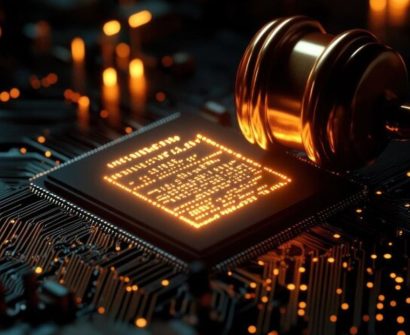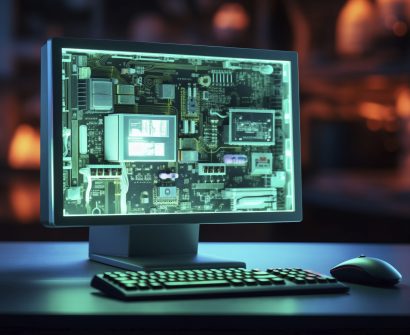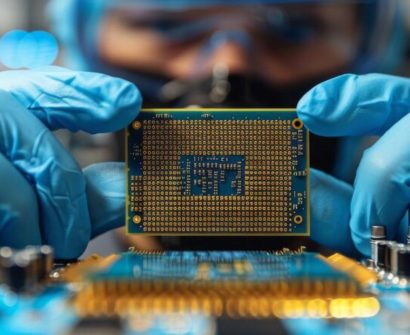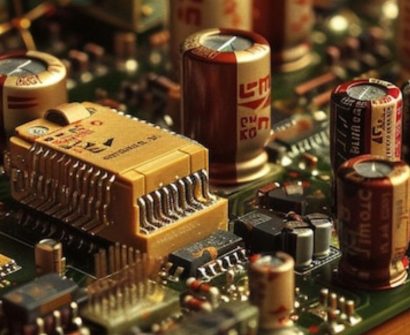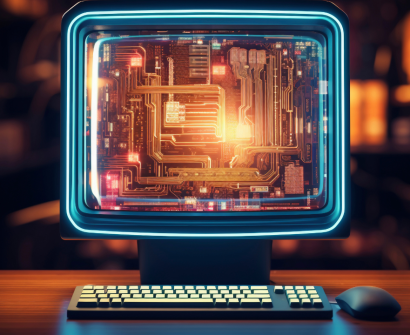Digital Electronics in the World of VLSI: A Guide for Aspiring Engineers

In today’s tech-driven world, where every aspect of our lives seems to be intertwined with digital advancements, the field of VLSI (Very Large Scale Integration) stands at the forefront of innovation. From smartphones to smart homes, from medical devices to automotive systems, digital electronics and VLSI have revolutionized how we interact with technology on a daily basis.
Understanding Digital Electronics and VLSI
Digital electronics deals with the manipulation of digital signals to perform various tasks such as data processing, communication, and control. It involves the design, analysis, and application of digital circuits that utilize binary logic to process and transmit information. It forms the backbone of modern computing systems, enabling the creation of complex devices and systems with remarkable efficiency and reliability.
VLSI takes digital electronics to the next level by integrating millions, or even billions, of transistors onto a single silicon chip. This level of integration allows for the creation of highly sophisticated electronic systems with unprecedented levels of performance and functionality. VLSI technology has fueled the development of powerful microprocessors, memory chips, and system-on-chip (SoC) solutions that power everything from consumer electronics to enterprise infrastructure.
The Significance of Digital Electronics and VLSI Courses
As the demand for digital electronics and VLSI expertise continues to soar, the importance of comprehensive education and training in these areas cannot be overstated and VLSI courses provide students with the knowledge and skills needed to design, simulate, and implement complex digital systems and integrated circuits.
These courses typically cover a wide range of topics, including:
- Digital Logic Design: Understanding the principles of Boolean algebra, logic gates, flip-flops, and sequential circuits forms the foundation of digital logic design.
- VLSI Design Methodologies: Students learn about the various stages of the VLSI design flow, including specification, design, verification, synthesis, and testing.
- Integrated Circuit Fabrication: An overview of semiconductor manufacturing processes and fabrication techniques gives students insight into how integrated circuits are produced.
- CAD Tools and Simulation: Hands-on experience with computer-aided design (CAD) tools and simulation software allows students to design and analyze digital circuits and VLSI layouts efficiently.
- Advanced Topics: Courses often delve into advanced topics such as ASIC (Application-Specific Integrated Circuit) design, FPGA (Field-Programmable Gate Array) programming, and low-power design techniques.
Career Opportunities in Digital Electronics and VLSI
The skills acquired through VLSI courses open up a world of exciting career opportunities in various industries, including semiconductor manufacturing, telecommunications, consumer electronics, aerospace, and automotive.
Graduates with expertise in digital electronics and VLSI design can pursue careers as:
- VLSI Design Engineers: Responsible for designing and optimizing integrated circuits for specific applications, VLSI design engineers play a crucial role in the development of cutting-edge electronic devices.
- Verification Engineers: Verification engineers ensure that complex digital designs meet functional and performance specifications through rigorous testing and simulation.
- CAD Engineers: CAD engineers develop and maintain the software tools used for digital circuit and VLSI design, contributing to the advancement of design automation technologies.
- Research Scientists: Researchers in academia and industry explore new techniques and methodologies to push the boundaries of digital electronics and VLSI technology, driving innovation forward.
Conclusion
In conclusion, digital electronics and VLSI represent the backbone of modern technology, powering the devices and systems that define our digital age. Courses in digital electronics and VLSI provide students with the knowledge, skills, and expertise needed to thrive in this dynamic and rapidly evolving field. As we continue to push the boundaries of what is possible with digital electronics and VLSI technology, the future holds endless possibilities for innovation and discovery.
To know more about VLSI Course , SuccessBridge VLSI training institute. You can begin your VLSI career by enrolling in the placement-assisted live courses available at SuccessBridge We offer various VLSI online courses. We offer VLSI Physical Design course, Design Verification course, DFT Training,Chip design course many more. Explore VLSI Courses From The Leaders In VLSI Training
Also Read: A Walkthrough VLSI Physical Design Engineer Salary In India.

